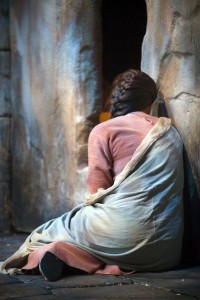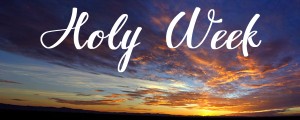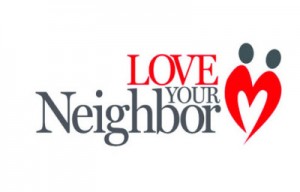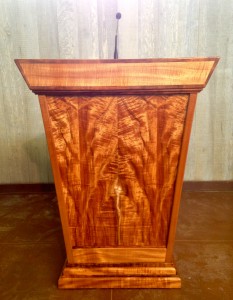by admin | Mar 28, 2016 | Message from Kahu

Mary Magdalene on Easter Morning
I love this picture of Mary Magdalene at the tomb of Jesus on Easter morning. Without seeing her face, we can feel her sense of loss, grief and utter despair. Jesus, her beloved teacher and mentor, is dead and someone has stolen his body. What more could be taken from Mary?
On Easter Sunday, we read the story of the resurrection from John’s Gospel. John’s account is unique in three particular ways: Mary Magdalene is all alone at the tomb of Jesus; it is still dark when she visits it; Jesus is there at the tomb. The other 3 Gospels portray Mary with other women at (or after) dawn, and Jesus never meets her there. John is painting a picture of Mary all alone in the darkness of her grief; and yet (to her surprise), Jesus is alive and visits her at the tomb. She doesn’t recognize him at first, even as he talks with her; but then, when she hears Jesus calling her by name, she suddenly recognizes him and her life is changed forever.
There is an important message in this story for us: Even in our darkest and most alone moments in life, God continues to be present. We may not recognize God’s presence. We may not be able to see at all in our darkest moments. Nevertheless, God is always there…always loving us…and always inviting us to open our hearts to receive and give love.
May we recognize God’s loving presence during this Easter season, and may our lives be changed forever!
Aloha nui!
Kahu Alan Akana
“A Message from Kahu Alan Akana” is provided most weeks by the Kahu (Pastor) of Koloa Union Church, a congregation of the United Church of Christ (UCC), a member of the Kauai Association and Hawaii Conference. Join us at 3289 Poipu Road in Koloa!
by admin | Mar 24, 2016 | Message from Kahu, Uncategorized

During this very special week, we will celebrate Holy Communion at 7 p.m. on Thursday evening…decorate Easter eggs and enjoy lunch with our children and their families on Friday from 10 to noon…and celebrate the resurrection of our Savior Jesus Christ with an Easter sunrise service, breakfast, worship and luncheon/Easter egg hunt. See our NEWS page for all of the details.
During our worship service on Easter, I will wrap up our time with Diana Butler Bass’ book Grounded: Finding God in the World, A Spiritual Revolution. Resurrection and the message of Easter is not an escape from the world but an call to fully live in the world and care for it as God’s beloved creation. Come and find God in the world! Join the spiritual revolution!
Aloha nui!
Kahu Alan Akana
“A Message from Kahu Alan Akana” is provided most weeks by the Kahu (Pastor) of Koloa Union Church, a congregation of the United Church of Christ (UCC), a member of the Kauai Association and Hawaii Conference. Join us at 3289 Poipu Road in Koloa!
by admin | Mar 16, 2016 | Message from Kahu

On Sunday, I shared with the congregation about the neighborhood in which I was raised. I was supported, encouraged and given guidance and wisdom from other neighbors. The couple who owned the neighborhood grocery store even gave me a weekend job for a year so that I could save up money for college. Because of my neighborhood, I became who I am today.
Diana Butler Bass, in her book Grounded, writes:
When we love our neighbor as ourselves, we build sacred connections between the spaces we inhabit.
There was something sacred, something spiritual happening in the neighborhood of my childhood and teenage years. It was sacred because of the connections that happened when people loved their neighbors. And I am very grateful!
In our Gospel reading on Sunday, a man asked Jesus what he must do to inherit eternal life; and then he answered his own question, based upon the teachings of the Old Testament:
Love God with all your heart, soul, strength and mind, and love your neighbor as yourself.
This man wanted to know who is neighbor was. Jesus moved the conversation from drawing circles around our homes in order to define our neighbors to discussing the importance of acting with compassion toward all people.
Who is your neighbor today and this week? How will you act with compassion toward him or her? How will you build sacred connections with this person…and help him/her to become who he/she might be in the future?
Aloha nui!
Kahu Alan Akana
by admin | Mar 7, 2016 | Message from Kahu

GROUNDED IN OUR HOMES
Diana Butler Bass writes in her book Grounded: Finding God in the World, A Spiritual Revolution:
The overarching narrative of the Bible is that of humanity searching for home.
I never really noticed this before, but after I read it, I thought of one example after another of biblical characters searching for home:
- Adam and Eve leaving the Garden of Eden in search of their new home
- Abram (Abraham) and Sarai (Sarah) leaving the land of Ur in search of the land promised by God
- Joseph and his brothers finding a new home in Egypt during the devastating famine
- Moses leading the Hebrew people from Egypt in search of a new home for an entire nation
- Naomi leaving Bethlehem with her husband and two sons looking for a new home in Moab and then returning to Bethlehem as a widow with her daughter-in-law Ruth and creating an altogether new home
- Mary and Joseph leaving Nazareth for Bethlehem and then with Jesus journeying to a new home in Egypt and then eventually to Nazareth
These are just a few of the examples that come to mind. Every one of those people redefined the meaning of home according to their values. Perhaps so many of these people in the Bible were searching for home and redefining its meaning because that is the human story as well. Perhaps it is the story of all of our lives. We spend a good deal of our lives searching for home…and redefining the meaning of home according to our values. I think it is one of the deepest longings we have.
Diana Butler Bass writes:
Two locations have emerged as particularly sacred: the front door and the table, the physical places at home where we form the spiritual habits of hospitality and gratitude.
What is true in our places of residence is also true in our church. We become sacred when we welcome all with open arms and open hearts…and when we express gratitude to God and each other. And, just like people have been doing for thousands of years, we redefine the meaning of home according to our values. May God grant us a greater sense of hospitality and gratitude as we do so.
Aloha nui!
Kahu Alan Akana
“A Message from Kahu Alan Akana” is provided most weeks by the Kahu (Pastor) of Koloa Union Church, a congregation of the United Church of Christ (UCC), a member of the Kauai Association and Hawaii Conference. Join us at 3289 Poipu Road in Koloa!
by admin | Mar 1, 2016 | Message from Kahu

NEW KOA PULPIT AT KOLOA UNION CHURCH
GROUNDED IN OUR ROOTS
On Sunday, we read from the Gospel of John, chapter 8, where Jesus addressed some of the Jewish leaders who claimed their exclusive hold on the truth and their right to hurt and kill others based upon their ancestry and position as children of Abraham and of God. Jesus told them: “If you were Abraham’s children, you would be doing what Abraham did, but now you are trying to kill me, a man who has told you the truth that I heard from God.” Jesus also told them: “If God were your Father, you would love me.” His point: You cannot use your relationship with God or your ancestral heritage to hurt others or claim to have an exclusive hold on the truth. Instead, we will love others—even those with whom we disagree. We will treat everyone with compassionate openness. Just knowing who our ancestors are is not enough: we must learn from them!
I shared with the congregation a bit about my maternal grandmother, Alice M. Gagner, and what I learned from her. She grew up in a small log cabin with 5 siblings on a farm in rural Montana. Ever since she was a young girl, she wanted to attend college and study agriculture. Since there was no high school for miles around, she moved in with a family in another town and worked for her board and room in order to graduate from high school. When she applied for college, people told her that she was not likely to get admitted because agriculture was “a man’s job.” Four years later, she was the first woman to receive a degree in agriculture from Montana State College (now University) in Bozeman. She also received a degree in home economics and, because of her two degrees, doors opened up for her all over the world, including the 10 years she lived on Kauai. She was the University of Hawaii home extension agent and coordinator of girl’s 4H for Kauai from 1949-1959.
My grandmother taught me to follow my dreams, to not allow others to determine their outcome because they doubted their possibilities, and to persevere at whatever I set out to do. She did so with grace and kindness to others.
On Sunday, I announced to the congregation that I decided to pay for our new koa pulpit, custom-designed for our sanctuary by Frank Pullano of Kalaheo, and have it named in memory of my grandmother. There will be a plaque installed on the inside which will have the following words:
In Loving Memory of Alice M. Gagner (1900-1992)
Resident of Kauai (1949-1959)
Grandmother of the Rev. Dr. Alan Akana
I invited those in attendance on Sunday to consider someone who was influential in their lives and consider ways that they might honor them. It might be a gift to the church or a meaningful not-for-profit organization; perhaps planting a tree or a garden; maybe just deciding to live with compassionate openness. I invite you to do the same.
Aloha nui!
Kahu Alan Akana
by admin | Feb 22, 2016 | Message from Kahu

GROUNDED IN THE SKY
On Sunday, I shared with the congregation about some of my experiences when I looked to the sky and said, “Wow!” One of those moments was with my son Palani on a very cold summer night at the top of Mauna Kea (at nearly 14,000 feet) on Hawai’i Island. After the sun set below us, we huddled under a heavy quilt and stared at the sky. There were so many stars that I didn’t even recognize that they were stars. I said to Palani, “It’s too bad there are those clouds (to which I pointed directly above us); otherwise we could see even more.” He responded, “Dad, that’s the Milky Way!” Imagine: seeing so many stars I actually thought it was a large cloud that covered a good portion of the sky! I didn’t know the Milky Way could actually look that “thick.”
As I stared at the sky, I felt a sense of awe and wonder. Just thinking about how many stars there must be up there and how far apart they are also made me feel very small. I thought of God creating it all and knowing every detail of every star and planet; and yet, I was reminded that God cares for me.
When we read our Gospel lesson from John, chapter 3, we heard these words: “For God so loved the cosmos….” The Greek word “cosmos” is directly translated into English as “cosmos” as well as “world”; but I chose to have it read with the former word because I wanted to remind us that God loves the entire universe—not just our planet, not just people, not just Christians. John tells us that Jesus said, “For God so loved the cosmos!”
I invite you to consider God’s love for the cosmos and how we might take much better care of it. I also invite you to consider God’s love for you and how you might share that love with others this week.
I invite you to join us for our Lenten Soup Supper on Wednesday evening for a time of reflection and discussion on this week’s theme of “Grounded in the Sky.” By the way, if you would like to see the video of the Stations of the Cosmos, which I mentioned in my sermon on Sunday, click HERE.
Aloha nui!
Kahu Alan Akana
“A Message from Kahu Alan Akana” is provided most weeks by the Kahu (Pastor) of Koloa Union Church, a congregation of the United Church of Christ (UCC), a member of the Kauai Association and Hawaii Conference. Join us at 3289 Poipu Road in Koloa!








Recent Comments